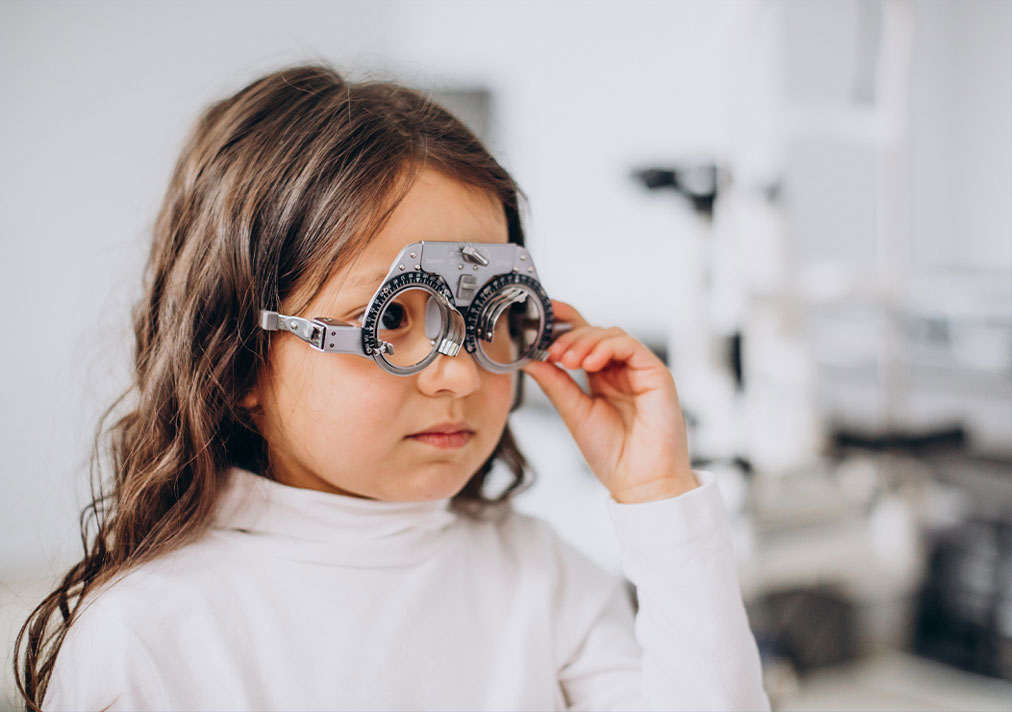What is the meaning of Glaucoma?
Glaucoma is a medical condition wherein sustained eye pressure leads to damage of the optic nerve (the nerve that connects the eye to the brain). If not treated timely, glaucoma can lead to total or permanent vision loss. It is the second leading cause of blindness and the most common cause of irreversible blindness throughout the world.
Glaucoma may occur as ‘primary’ (without any associated eye disease) or ‘secondary’ (secondary to trauma, eye surgery, systemic diseases like diabetes, hypertension, stroke, thyroid disorder).
Cause of Glaucoma
Aqueous humor, the fluid present in the eye, generally drains out through a mesh-like channel. This fluid builds up if either the drainage channel gets blocked or if the eye starts producing excess fluid. Experts aren’t always sure what causes the blockage. It may, however, be inherited (means that it is passed down from parents to children) or may be due to certain drugs (steroids) or eye trauma, or past eye surgeries.
The optic nerve damage can be due to poor blood supply either due to raised pressure or other flow-related factors.
Let’s discuss some steps about its prevention
In the majority of cases, glaucoma is asymptomatic to start with, though patients may visit a doctor with complaints of watering, frequent headaches, eye pain, red-eye, or colored halos (seeing halos around a light source). It is only when a person has progressed to the very advanced stage of the disease that he/she will experience vision loss or typically field loss due to glaucoma. The asymptomatic nature of this disease leading to irreversible vision loss makes it more blinding and worrisome.
So, the key to protecting us from any permanent loss of vision is to pick up the disease in its early stages and start treatment before any marked vision loss has already occurred.
Who’s at risk?
The ‘at risk’ glaucoma population includes those using high powered glasses (both myopes and hyperopes for different forms of glaucoma), those with a strong family history of glaucoma (in either their parents or siblings), having co-morbid diseases (like diabetes, hypertension, thyroid disease) or having undergone complicated eye surgeries in the past or subject to eye trauma.
Besides them, anyone above 40 years of age, should go for a thorough eye examination and at the slightest suspicion of glaucoma must be screened by a glaucoma specialist.
Is glaucoma treatable?
Glaucoma although irreversible but amenable to treatment, is more so if detected early.
Treatment options include eye drops (in the majority of cases as the first-line treatment), laser (in case of angle-closure glaucoma), or glaucoma surgery (in cases not responding to either of the two modalities)
Search for eye care hospitals in India for regular appointments with eye care specialists to detect glaucoma disease in its early stages so that it becomes easy to treat before the situation worsens beyond repair. It is advisable to have regular eye check-ups (6 monthly or at least annual check-up) in those >40 years of age and, if found at a higher risk, then more frequent screenings should be undertaken at Eye-Q India.
Do’s
- Regular eye check-ups
- Check if anyone in your family having glaucoma genetically
- Consult an eye specialist in case of any eye injury (even if it’s a minor one)
Don’ts
- Put OTC eye drops (steroids) without consulting an eye specialist
- Ignore symptoms of frequent eye pains/red-eye or colored haloes




